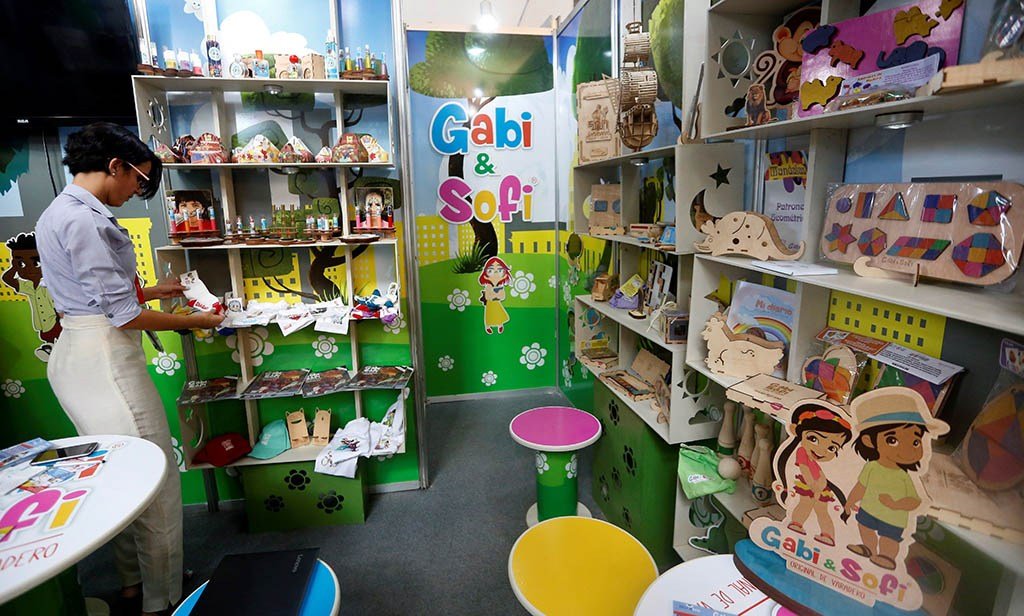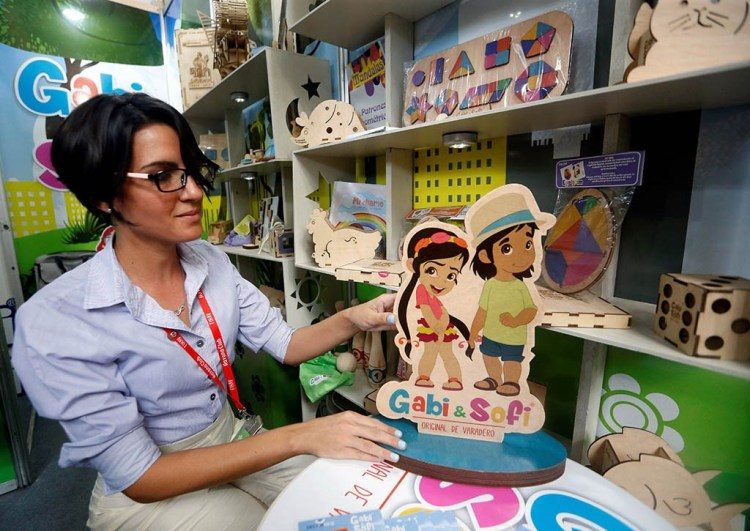A line of handmade toys designed and manufactured by Cuban entrepreneurs using recycled wood from the habano industry for the first time will get to Europe, after the signing of an unprecedented agreement this Thursday that will allow the autonomous cooperative to take its products to the international market.
The agreement, signed between the Cuban state company Copextel as an intermediary and the German Profümed at the Havana International Trade Fair (FIHAV 2019), will be a great step for the brand, created in 2016 in response to the high demand for children’s products on the island and whose name is Gabi & Sofi.
“As far as we know, it is the first time that Cuban toys, with a Cuban identity and a proper Cuban brand, reach the international and European market,” said to the EFE agency Sarilén Morales, one of the members of the Decorarte non-agricultural cooperative which is the owner of the brand.
This non-state management formula is the closest thing to small and medium enterprises in Cuba, whose government does not recognize SMEs for now.
Founded in 2013, Decorarte is based in Varadero, the famous Cuban beach resort located some 100 kilometers east of Havana, where the entire Gabi & Sofi product line is conceived and manufactured. In addition to educational toys, it includes school supplies, furniture, decorative elements, textiles and lights.

Inspired in the children of the founders, the brand also prints cartoons and prepares animated shorts about the adventures of the two characters with their pets: a crocodile and a zunzun (hummingbird), Cuban endemic animals.
“This export agreement allows all the brand’s products to reach the European market, and thus a bit of Cuba will reach children from all over the world,” said Morales, head of the Decorarte online communication team.
The cooperative’s hundred “self-employed” are part of Cuba’s current 617,974 private workers, according to the most recent official data on the sector, which has grown steadily in the last decade thanks to the economic reforms promoted since 2011 by former President Raúl Castro.
More than 1.4 million people in Cuba work in the non-state sector, a figure that includes license holders for self-employment and their employees.
To respond to the demand for products designed specifically for children at affordable prices in the country, where the average state salary does not reach 45 dollars per month, and to lower costs, Decorarte uses recycled wood from the famous Cuban habano industry.
“This also allows us to use material that otherwise would have been wasted,” said Morales, who also mentioned the cooperative’s actions with the community in Varadero and its association with the locality’s schools.

The company’s educational toys are designed to stimulate different skills in children up to 12 years old and today they can be found at its headquarters and in the stores of several zoos in the west and center of the country.
Soon they hope to expand their presence to Santiago de Cuba, to the east of the island.
Among other projections, the cooperative foresees the signing of another agreement with an Irish-Cuban joint venture, Mediatex, to produce socks with the brand identity.
One of Raúl Castro’s key reforms to update the socialist model and reduce the overstaffed state sector was the expansion of private work―where cooperatives are included. More than 400 cooperatives of this type are working today on the island, with more than 17,000 members, the majority in the sectors of gastronomy (151), commerce (81), construction (59) and industry (34).
However, the creation of such cooperatives in highly qualified professions such as doctors, architects or lawyers is not allowed.
Last August the government published new regulations and suspended temporarily the creation of non-agricultural cooperatives with the aim of “improving” this sector.










